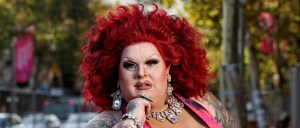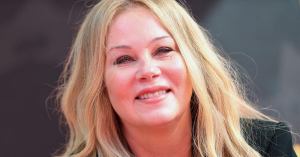Richard Burgi has been fired from The Young and the Restless after what the actor said was an accidental violation of the CBS daytime drama’s COVID safety policy. Burgi, who joined the show last March in the recurring role of Ashland Locke, took to his Instagram Story Tuesday to “set the record straight” on being let go from the series.
After visiting family for Christmas and testing positive for COVID, Burgi said he “naively and inadvertently violated the show’s COVID policy” by returning to set after five days of isolation in line with the timeframe the Centers for Disease Control and Prevention set at the end of December. Burgi claimed he was unaware the show has a 10-day isolation policy even with his two negative tests, and he violated that policy with his return to set.
Videos by PopCulture.com
“I felt terrible about it,” Burgi said in the video. “I still do. It bothers me mightily but it is what it is. I respect whatever the show’s decision is. They’re doing the best they can, as we all are.” Burgi had announced last weekend that he would be leaving the show but didn’t indicate why he was leaving. Guiding Light actor Robert Newman will make his debut in February as Locke, The Young and the Restless recently announced.
“I truly wish the gentleman who’s coming in to play Ashland a wonderful time,” Burgi said of his replacement. “He’s going to be working with the most incredible actress and a great, great cast. It’s an amazing show, I have nothing but good memories and good wishes for it.”
Burgi is just one of the several soap opera actors to run up against COVID policies in recent months. Over on General Hospital, stars Ingo Rademacher and Steve Burton were fired for breaching the production’s COVID vaccine mandate, prompting Rademacher to file a lawsuit against ABC, claiming his request for a religious exemption to the vaccination policy was denied.
In the lawsuit, Rademacher argues he was “entitled to a religious exemption against mandatory vaccination for COVID-19 on the basis of my deeply and sincerely held moral belief that my body is endowed by my creator with natural processes to protect me and that its natural integrity cannot ethically be violated by the administration of artificially created copies of genetic material, foreign to nature and experimental.”
Most Viewed
-

SYDNEY, AUSTRALIA – FEBRUARY 26: Drag Icon Maxi Shield poses against the cycle way construction site (along Mardi Gras parade route on Oxford ) on February 26, 2025 in Sydney, Australia. The Sydney Gay and Lesbian Mardi Gras parade will return to Oxford Street for the 47th time. The parade began in 1978 as a march to commemorate the 1969 Stonewall Riots in New York and has been held every year since to promote awareness of gay, lesbian, bisexual and transgendered issues. (Photo by Don Arnold/WireImage)







